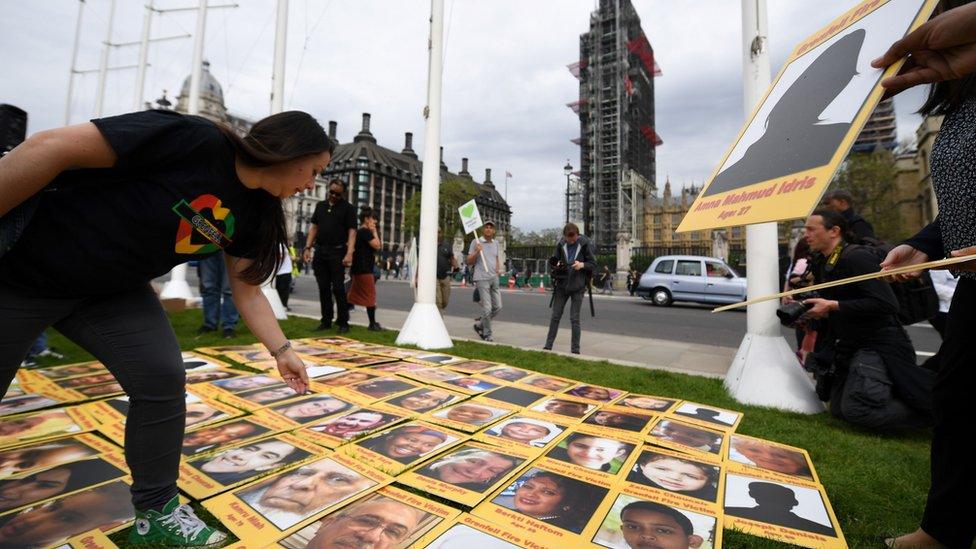Grenfell Tower fire: Survivors in emergency housing 12 months on
- Published
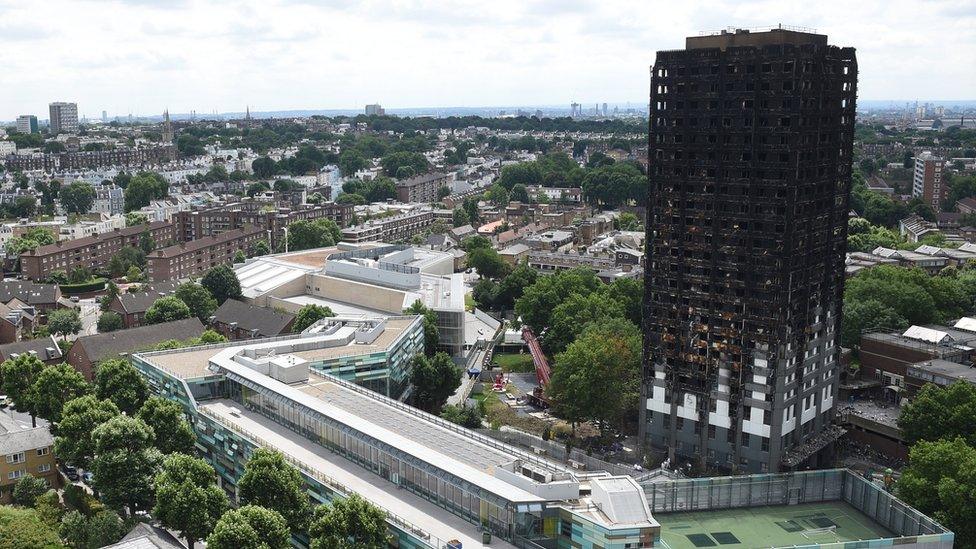
Cladding on the Grenfell Tower was blamed for the spread of the fire
Survivors of the Grenfell Tower fire will still be living in emergency accommodation 12 months after the tragedy, the government has confirmed.
Housing Secretary James Brokenshire told MPs that of the 210 households affected, 201 had accepted offers of temporary or permanent accommodation.
Labour said only a third of families affected were in a permanent home.
Meanwhile, the government announced it will fund a £400m operation to remove dangerous cladding from tower blocks.
Only buildings owned by councils and housing associations will qualify.
Mr Brokenshire told a Labour-led debate that of the 201 households which had accepted offers of temporary or permanent accommodation, 138 have moved into their accommodation. Of these 138, 64 are in temporary accommodation and 74 in permanent homes.
Weeks after the fire on 14 June last year, which killed 71 people, the government said survivors would be offered permanent furnished social housing within 12 months.
Mr Brokenshire acknowledged that progress had been "too slow" and that it was "understandable" that some in the community would feel "let down" but said the local council now had 300 properties available "to those who need them".
'The State failed'
Shadow housing secretary John Healey said residents had spoken about being offered properties which were damp, with insufficient bedrooms or on tenancy terms which were different to those they had in Grenfell.
"No-one wants to bring up children in a hotel room," he said.
During the debate, Labour former minister David Lammy paid tribute to family friend Khadija Saye, a 24-year-old artist who died in the fire.
"She died, frankly, because the state failed her," he said. "The state told her to stay put and she stayed put and when she did leave, even though she got split up from her mother, she didn't quite make it out.
"Had she set about leaving earlier, she probably would be with us today."
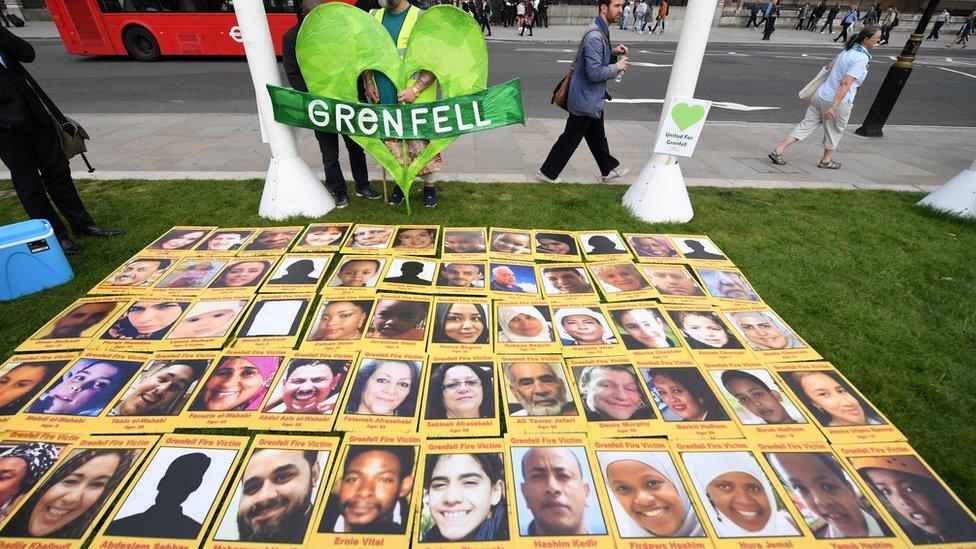
Conservative backbencher Kwasi Kwarteng said the government will be judged on its response to the tragedy and warned that the Tory party was at risk of losing the good will of victims of the fire.
He told the debate that there was an issue of a "polarised society".
"The suspicion today is that as the royal borough has got wealthier and wealthier, the political class, the people running the borough have really forgotten some of the less advantaged members of their community," he said.
Announcing the funding for replacing cladding during Prime Minister's Questions, Theresa May told MPs that fire and rescue services had visited more than 1,250 tower blocks around the country since the fire.
Another resident - who suffered from long-term health issues prior to the disaster - was rescued from the fire but died in hospital in January.
Cladding on 228 buildings failed safety tests after the disaster.
On Thursday, Dame Judith Hackitt, the senior engineer responsible for reviewing the building regulations in the wake of the Grenfell fire, will publish her final report.
"As we approach the anniversary of the appalling tragedy that was the Grenfell Tower fire, our thoughts are with the victims and survivors and all those affected by that tragedy," added Mrs May.
The prime minister said that while councils and housing associations "must remove dangerous cladding quickly", the new scheme should not undermine other "important maintenance and repair work".
Privately-owned tower blocks will not be covered by government funding with residents in some buildings covered in the cladding initially being asked to cover the costs.
Leaseholder residents in the Citiscape building in Croydon, south London, were asked to pay up to £31,300 each in order for the cladding to be replaced but the tower's developer, Barratt Developments, then said it would pay instead.
- Published15 May 2018
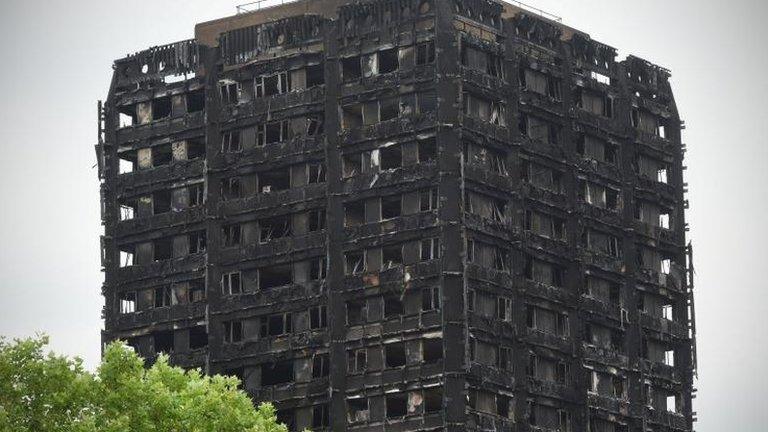
- Published15 May 2018
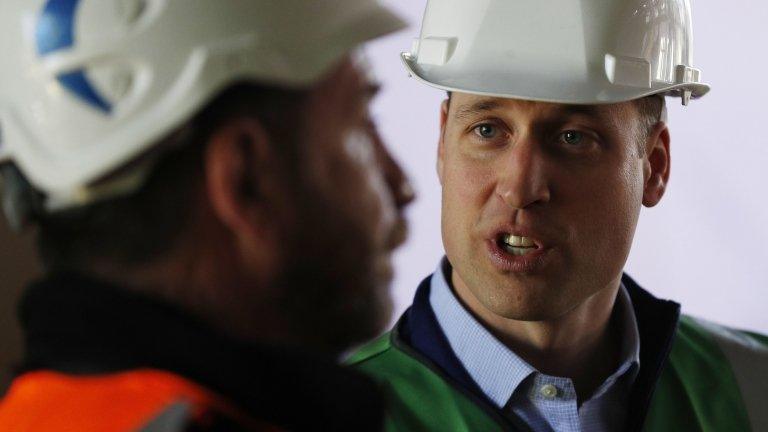
- Published14 May 2018
